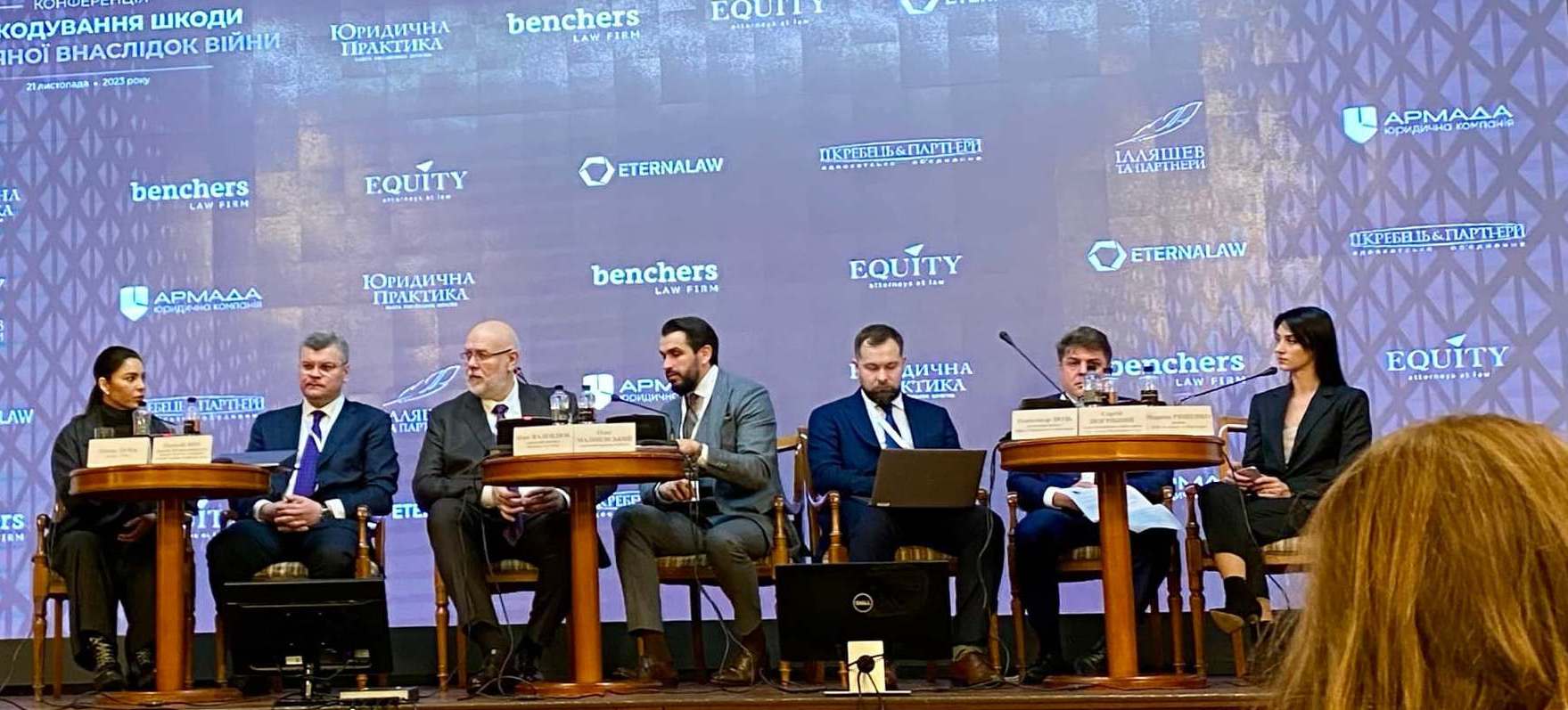BDO in Ukraine attended II Conference “Compensation for War Damage”
BDO in Ukraine attended II Conference “Compensation for War Damage”
Our country is in its second year of full-scale war. Time is passing, and we should prepare all possible mechanisms for assessment and compensation of war damages to timely launch these processes.
Our colleagues Dmytro Korol, Head of Business Valuation and Financial Modeling, and Appraiser Oleksandr Skalskyi joined the discussion of this important issue on November 21 at the II Conference “Compensation for War Damage”.
Possible solutions to this issue were discussed at the event, both for the public sector and for private businesses and individuals. Much attention was paid to the support of Western countries in implementing these processes.
Here is a list of the main topics discussed at the conference:
- International mechanisms of damage compensation — cooperation at the international level to ensure justice.
- National court practice — reviewing and analyzing court decisions to optimize strategies.
- Prospects for the recognition and enforcement of Ukrainian court decisions abroad. Sources of receiving compensation — international recognition as a step towards justice.
- Documenting the damage caused by aggression: the experience of the private sector — our own contribution to support to recovery of those affected.
- Practice related to reimbursement and compensation for damage caused by military aggression is a retrospective that indicates the way we have gone in the past and guides us into the future.
- Sector-specific aspects of recording and compensation for caused damage — an individual approach for each sector of the economy.
- ARMA's activities: successful experience and challenges, opportunities of cooperation with the private sector — our team is always ready for fruitful cooperation to achieve common goals.
Dmytro Korol stated that in spite of absence of an effective mechanism of compensation for damages caused by the aggressor, there is an open discussion of possibilities and mechanisms of compensation at the state level, legal entities and individuals affected. This is both a sign of certain optimism and a determination to prepare effectively for the moment when such mechanisms are developed and can be implemented. This means that the work that would still have to be done later, such as recording the consequences of the aggression, collecting evidence of damage, etc. is being done now.
The private sector is actively involved in the process and supports both its clients and the country in finding efficient algorithms. Leading law firms are interested in applying international experience and ensuring that the procedures and results of the process of recording the consequences and collecting evidence comply with all international requirements.
The issue of compensation for damages, which is often raised in the media, usually concerns primarily the damage caused to the state. Nevertheless, all parties of the dialogue already recognize the importance of developing a mechanism within which future compensation under the justice principle would apply to those affected, both legal entities and individuals.
The representatives of the judiciary stress the importance of ensuring that the legal process and judicial practice comply with international norms and requirements, and avoid emotional court decisions. Such an approach is essential for Ukraine's path to EU membership, to avoid the perception of “savages” who have established, investigated and ruled on their own.
The parties to the process are therefore constantly looking for mechanisms, if not for direct involvement of the defendant in the proceedings, then at least for guarantees and evidence of such an opportunity — from reviewing materials from afar (the possibility of working through russian embassies in third countries is being discussed) to notification of court hearings (in particular, it is a question of holding court hearings online with the declared possibility of the defendant's participation in video call format).
Compensation for damages at the occupied territories
Another topic of discussion was the attempts at legalizing the process of assets appropriation at the occupied territories of Ukraine using the “ownerless” scheme, which is legal under the legislation of the aggressor country.This is how it works. The occupier, to whom a particular asset was previously transferred for management, applies to the newly appointed occupation authorities. Motivating his appeal by the fact that the legal owner has not participated in the management of the asset for the past few months, the request to initiate the procedure for transferring the rights to the asset to a new owner — a citizen of the aggressor country — is processed.
Clearly, representatives of the public and private sectors are not waiting when and how the process of compensation for war damage will be settled, but are already taking steps to address these issues, considering all types of damage and affected persons.
If your company has suffered damage due to the war, you can contact us for professional advice on war damage assessment to learn about further actions that have been determined in our country so far.
